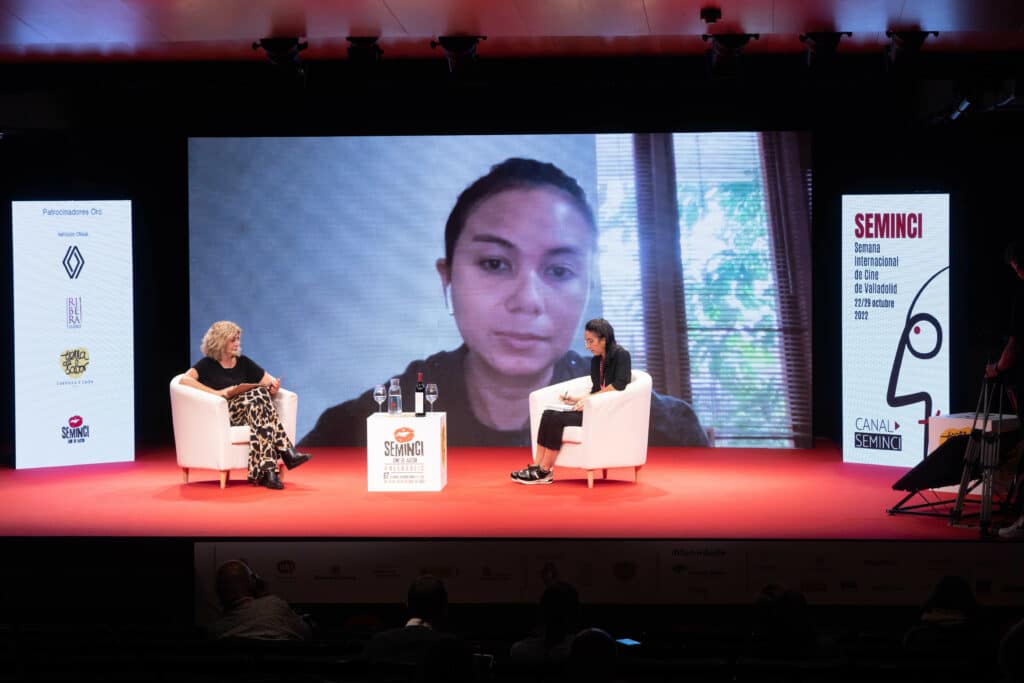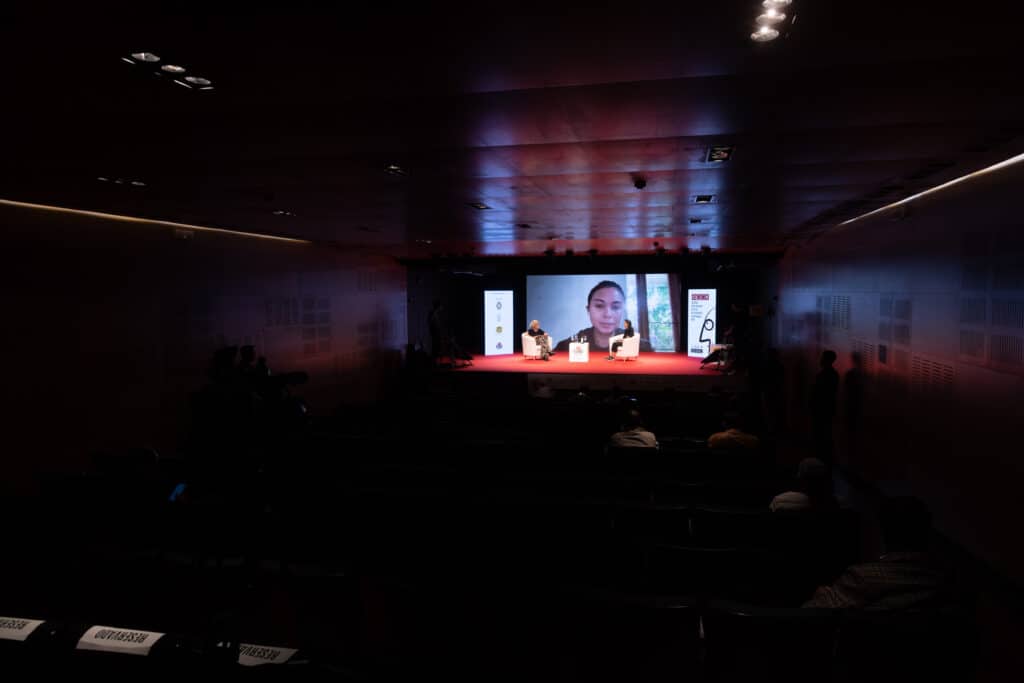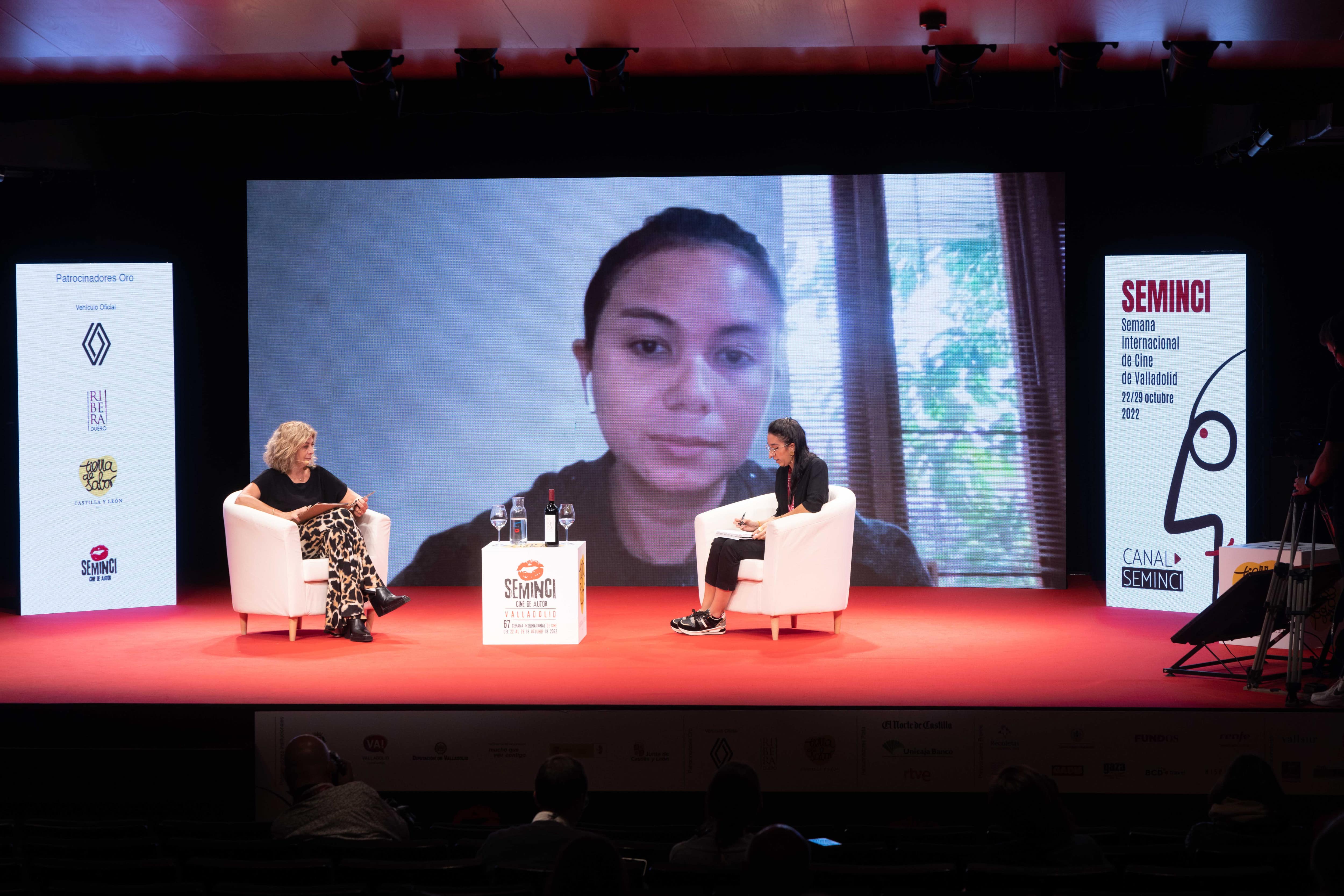The Indonesian filmmaker co-wrote the script of her film based on the first chapter of
the novel Jais Darga Namaku by Ahda Imran
Indonesian filmmaker Kamila Andini connected so much with Ahda Imran‘s Jais Darga Namaku that she decided to use the first chapter of the novel as the basis for Before, Now and Then. The film is part of the Official Selection of the 67th International Film Week of Valladolid and the director, although she could not be present at the Teatro Calderón, took the opportunity of presenting the Seminci Channel to explain in first person the details of her fourth feature film.
Perhaps the germ of this connection with the story of her protagonist lies in her training as a sociologist and her special attention to cultural issues. “Nana and I share that past. Her culture is the culture of my grandmother and many other women. The things that happen to Nana happened to them. Sometimes I deal with my culture from one of their dialects, even though I don’t speak them. This film is very special because it is based on my roots, on my family, and I have based it on my mother tongue,” she said during her speech.

Her connection to her country’s past is not the only one in the project team. Happy Salma, the leading actress, also shares these roots and even speaks the dialect of the characters in the film, an additional reason for Andini to write the script with her in mind. Moreover, the two have shared a professional dramaturgical background: “My relationship with her goes back a long way because we have worked together on plays that I directed and she produced.
Filming in the middle of the pandemic
In the final result, some impositions from her own environment played an important role. On the more positive side, Indonesia’s lush nature is clearly integrated into the film: “The concept of this film is very internal, very personal. What has happened to Nana has happened to many women and I wanted to represent her world from the perspective of a woman locked in her house and even in herself. That’s why I wanted to represent many textures: nature, bamboo…”.
But also the restrictions of COVID-19: “We shot during the pandemic and we had to design the sets to do it in those conditions, so there are not many locations. It was a challenge, but a fantastic challenge. Also, the 1960s was the most interesting decade in Indonesia, and I wanted to portray Nana in this way”.
Despite the temporal distance, the protagonist of the story has a little bit of the filmmaker, as do other characters in her filmography. Kamila Andini has stated that in all her films she tries to be part of herself. From this perspective, it is possible to find a relationship between these characters.

An open door to relationships between women
Before, Now and Then has been part of the programme of a wide range of festivals. In some, with notable success: it won the award for best supporting performance for Laura Basuki in Berlin, as well as the Jury Prize at the Brussels Festival. The director says that she has not been able to be present at all of them, but that she has been able to enjoy the positive reaction of the spectators at those she has attended.
In this sense, she has valued the female attendance: “I have seen many women at the screenings, and I think that in some way they have been able to connect with the film. I believe that cinema should serve as a window to connect with other people, and I love the fact that through my films they can get to know my culture”.



























![Logo Foro Cultural de Austria Madrid[1]](https://www.seminci.com/wp-content/uploads/2024/09/Logo-Foro-Cultural-de-Austria-Madrid1-300x76.jpg)








